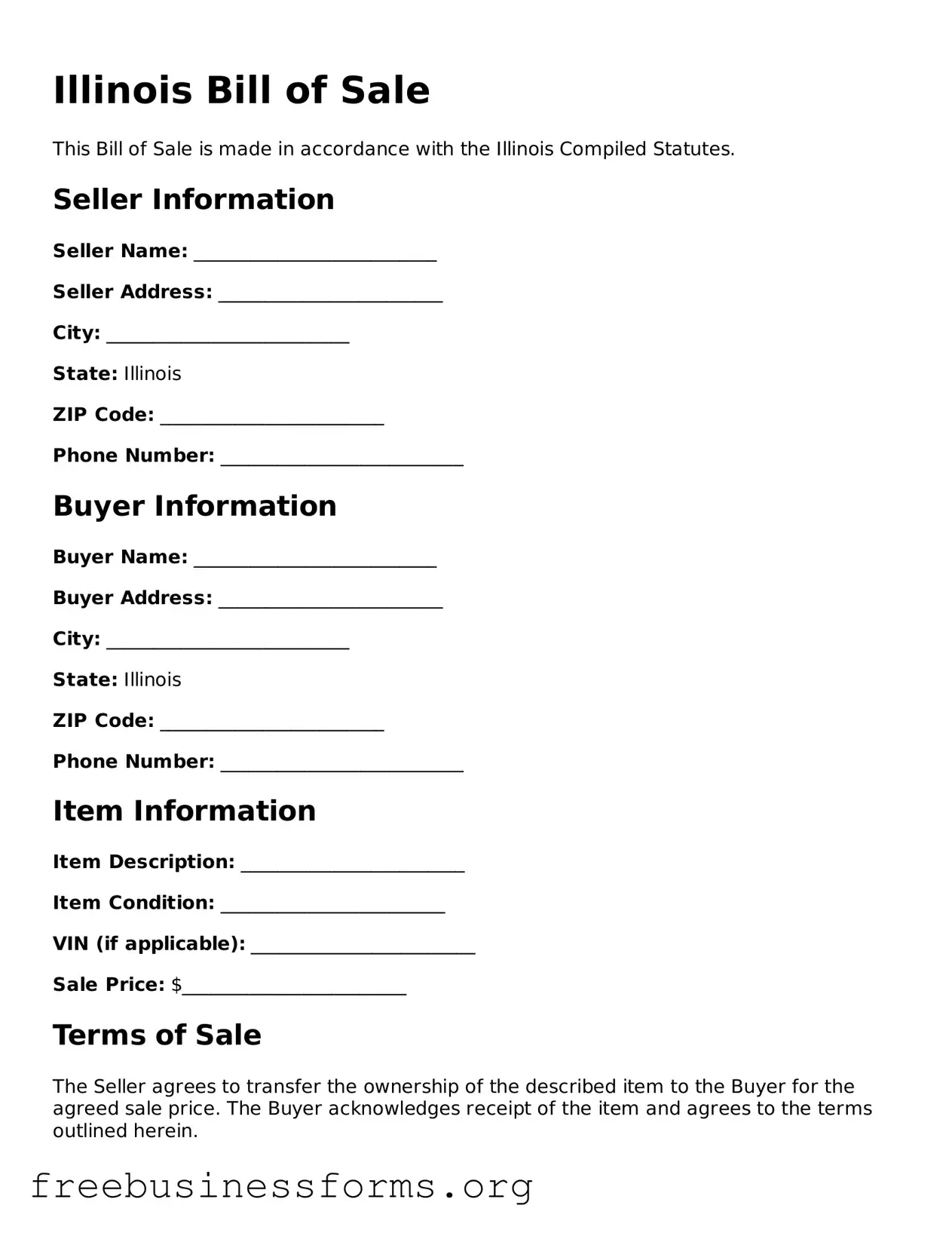Blank Bill of Sale Template for Illinois
The Illinois Bill of Sale form is a legal document that serves as proof of a transaction between a buyer and a seller. This form outlines the details of the sale, including the items being sold, their condition, and the agreed-upon price. By using this document, both parties can ensure clarity and protect their rights during the transfer of ownership.
Open Form Here

Blank Bill of Sale Template for Illinois
Open Form Here

Open Form Here
or
↓ PDF File
Quickly complete this form online
Complete your Bill of Sale online quickly — edit, save, download.